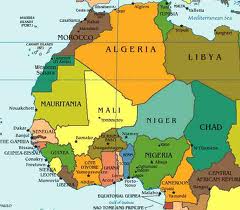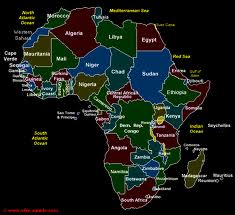[Nigeria Report] Antibiotics, other drugs used in West Africa found failing quality test
A new study on the use of anti-malaria, antibiotics and tuberculosis drugs in African countries indicate that they are failing basic quality tests, raising fears that many of such drugs may not be having the desired impact on patients.
Up to 15 percent of all drugs tested in African cities and 7 percent in Indian cities failed basic quality testing, according to the report published by the researchers from the American Enterprise Institute, and the Ghana based IMANI Centre for Policy & Education.
The study, which was obtained by The Guardian Newspaper Monday (Aug. 13) stressed how a more detailed study of malaria drugs also found up to 40 percent of those bought in the two largest West African cities have insufficient active ingredient.
In the light of this, the lead researchers, Roger Bate and Franklin Cudjoe, called for international pressure on India, cities of Beijing and New Delhi to put their regulatory houses in order.
“Part of this pressure should come from international donors, who pay for many of these Chinese and Indian drugs on behalf of the poor in Africa. Donors should expose and combat the double standard of companies exploiting weak oversight to sell poor-quality products to lower-income markets. In the face of such a threat to public health, inaction is not an option. Drug manufacturers, regulators and donors can try proven mobile phone-based technologies, such as mPedigree to help fight the cankerworm,” they noted in a joint statement.
The duo noted, “A fortnight ago, along with four other authors and researchers, we published one of the world’s biggest studies into drug quality. Over the past four years, we purchased 2652 samples of anti-malaria, antibiotics and TB drugs, from pharmacies in 19 cities across 17 developing and middle-income countries.
“The results are alarming, up to 15 percent of all drugs tested in African cities and 7 percent in Indian cities failed basic quality testing. A more detailed study of malaria drugs also just released found up to 40 percent of those bought in the two largest West African cities have insufficient active ingredient.”
“In response to rising calls by many health activists and NGOs about the cost of essential drugs for the developing world, global health agencies and western donors have made great efforts in recent years to subsidise and improve the supply of medicines for diseases affecting the world’s poorest people, particularly malaria, tuberculosis (TB) and other deadly infections. It is, therefore, a serious cause for concern that a significant proportion of drugs for these diseases fail basic quality tests, potentially undermining these efforts and posing a grave threat to public health.”
The report called for the highest possible standards in the production of drugs used to treat these diseases, emphasising that this was important in the recovery of patients.
“This means the sick patient is unlikely to recover and it increases the chance of malaria parasites or TB bacteria developing resistance to the treatment. This has the potential to render entire classes of medicines useless, making malaria or TB untreatable with currently available medicines. Given that 8.8-million people contracted TB in 2010, and at least 240-million malaria, the public health consequences are unthinkable. Some of the substandard drugs we identified were most likely counterfeits, the statement read.
“But many more were made by local African, Indian or Chinese companies, but without the proper oversight of a competent government drug regulatory authority. Up to 25 percent of such drugs manufactured in Africa, 16 percent of those made in China and 4 percent of Indian drugs failed our testing, compared with 1.7 percent of those made in the European Union and the U.S. More disturbingly, a small but significant number of poor-quality drugs we found had been quality-assured by the World Health Organisation (WHO), which has the responsibility for ensuring medicine standards in developing countries.”
It went on, “while drugs approved by the WHO are generally high quality, there appears to be a problem with such products, especially anti-malaria, manufactured in China. Nearly 18 percent of the WHO-approved Chinese products we tested did not reach required standards, contrasting with a still worrying 2.4 percent failure rate of Indian-made WHO-approved products
Uwalaka Temple U.B Intern Reporter news@theasian.asia



























































